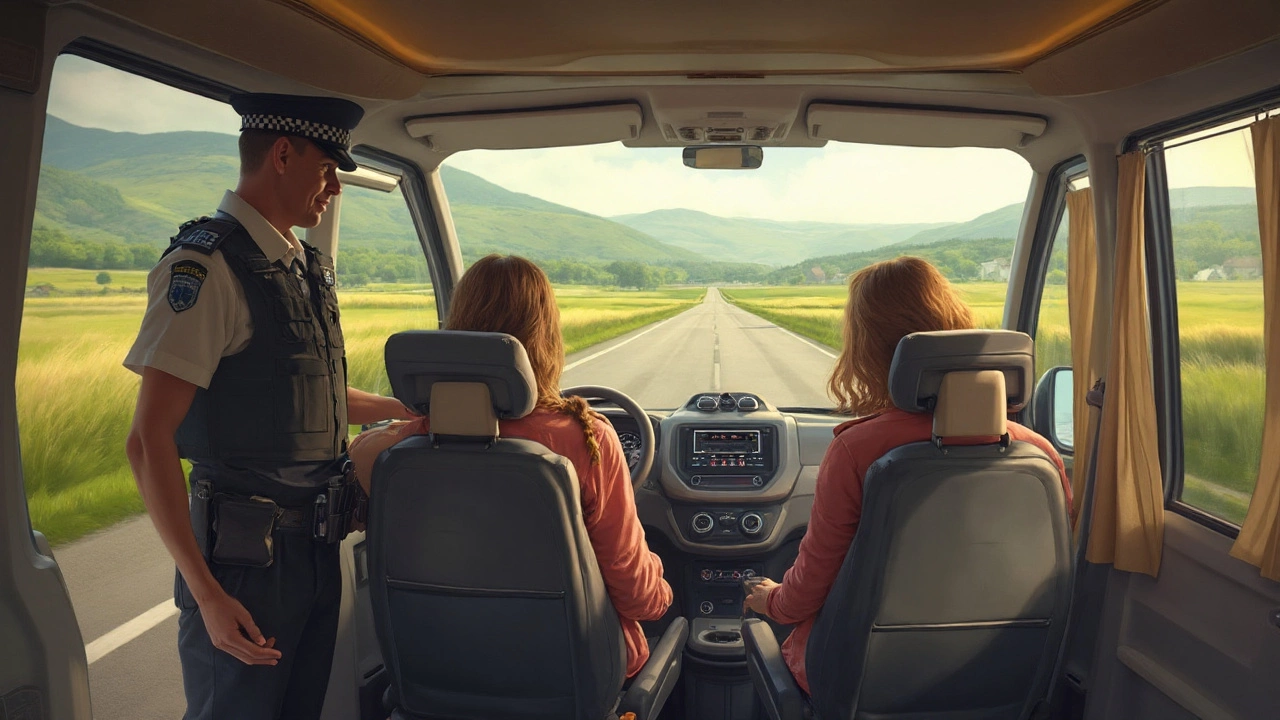UK Motorhome Regulations: The Basics You Need to Know Before You Hit the Road
If you’re planning a motorhome adventure around Nottingham or anywhere in the UK, you need to know the rules that keep you safe and legal. The good news? Most of the regulations are straightforward, and once you get the hang of them, driving a motorhome feels just like any other vehicle – only with more freedom.
Licensing and Age Requirements
First off, you’ll need a valid UK driving licence. If the motorhome’s gross vehicle weight (GVW) is under 3,500 kg, a standard Category B licence is enough. Anything above that requires a Category C1 licence, which you can add after a short training course. Most hire companies in Nottingham will check your licence before handing over the keys, so make sure you meet the weight limit of the vehicle you book.
Speed Limits and Where to Drive
Motorhomes follow the same speed limits as cars on most roads: 30 mph in built‑up areas, 60 mph on single carriageways and 70 mph on motorways – as long as the vehicle’s weight stays under 3,500 kg. If you’re driving a larger rig, the limits drop to 20 mph in towns, 50 mph on single carriageways and 60 mph on motorways. Keep an eye on road signs; they’ll tell you if a lower limit applies for heavy vehicles.
While you can drive on most highways, some narrow country lanes aren’t suited for big motorhomes. Look out for "no motorhome" signs, especially in historic city centres like Nottingham’s Old Market Square. When in doubt, pull over safely, check a map, or ask locals – they’ll point you to a better route.
Parking and Overnight Stays
Parking a motorhome isn’t the same as parking a car. You’re allowed to park on a public road for up to 24 hours, but you must not block traffic, driveways, or private property. Many towns have designated motorhome bays with size markings – use those whenever possible.
For overnight stays, wild camping is a gray area in England. It’s technically illegal to camp without landowner permission, but in Scotland you can camp almost anywhere if you act responsibly. In the UK, look for official motorhome sites, caravan parks, or designated “overnight parking” spots. Nottinghamshire has several safe, affordable sites that provide electricity and waste disposal – essential for a comfortable night.
Safety Gear and Legal Obligations
Every motorhome must have a valid MOT, insurance, and road tax. Before you set off, check that the vehicle’s registration document (V5C) is up to date. Inside, you’ll need a fire extinguisher, a first‑aid kit, and a reflective warning triangle. Some regions also require a spare tyre and a wheel‑brace – don’t skip these; a flat on a rural road can ruin your holiday.
Don’t forget the breath‑alcohol limit – it’s the same as for standard drivers (80 mg of alcohol per 100 ml of blood). If you’re planning a long drive, rotate drivers and take regular breaks. Fatigue is a common cause of accidents involving large vehicles.
Electrical Hook‑Ups and Waste Disposal
Most UK campsites use the standard 13 amp plug, but some motorhomes have a 15 amp or dual‑plug system. Bring a suitable adapter and check the campsite’s power rating before you plug in. Properly emptying the waste tanks is not optional – it’s illegal to dump waste on public land. Use the designated dump points at the campsite or a nearby service station.
Following these basics keeps you on the right side of the law and makes your motorhome trip more enjoyable. Nottinghamshire’s scenic routes, historic villages, and welcoming campsites are all waiting for you – just obey the rules, plan ahead, and you’ll have a smooth ride.
Quick Checklist Before You Go
- Confirm your licence category matches the motorhome’s GVW.
- Check MOT, insurance, tax and registration documents.
- Know the speed limits for your vehicle size.
- Plan parking and overnight spots – use official sites whenever possible.
- Pack fire extinguisher, first‑aid kit, warning triangle and spare tyre.
- Bring the right plug adapter for campsite electricity.
- Always empty waste tanks at approved points.
Follow this checklist, respect the local rules, and you’ll enjoy the freedom of motorhome travel across the UK without a hitch.
